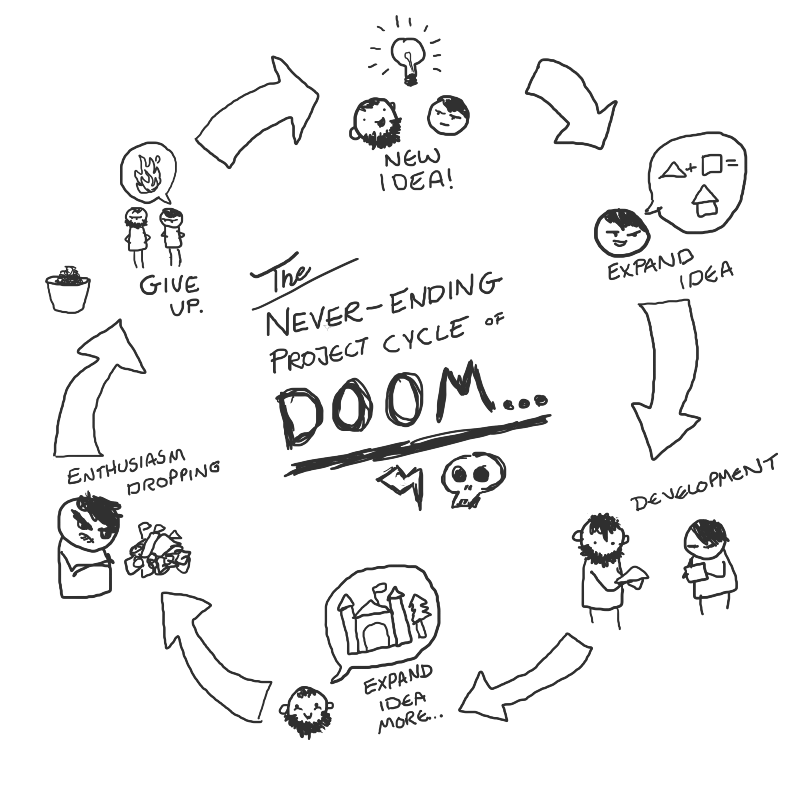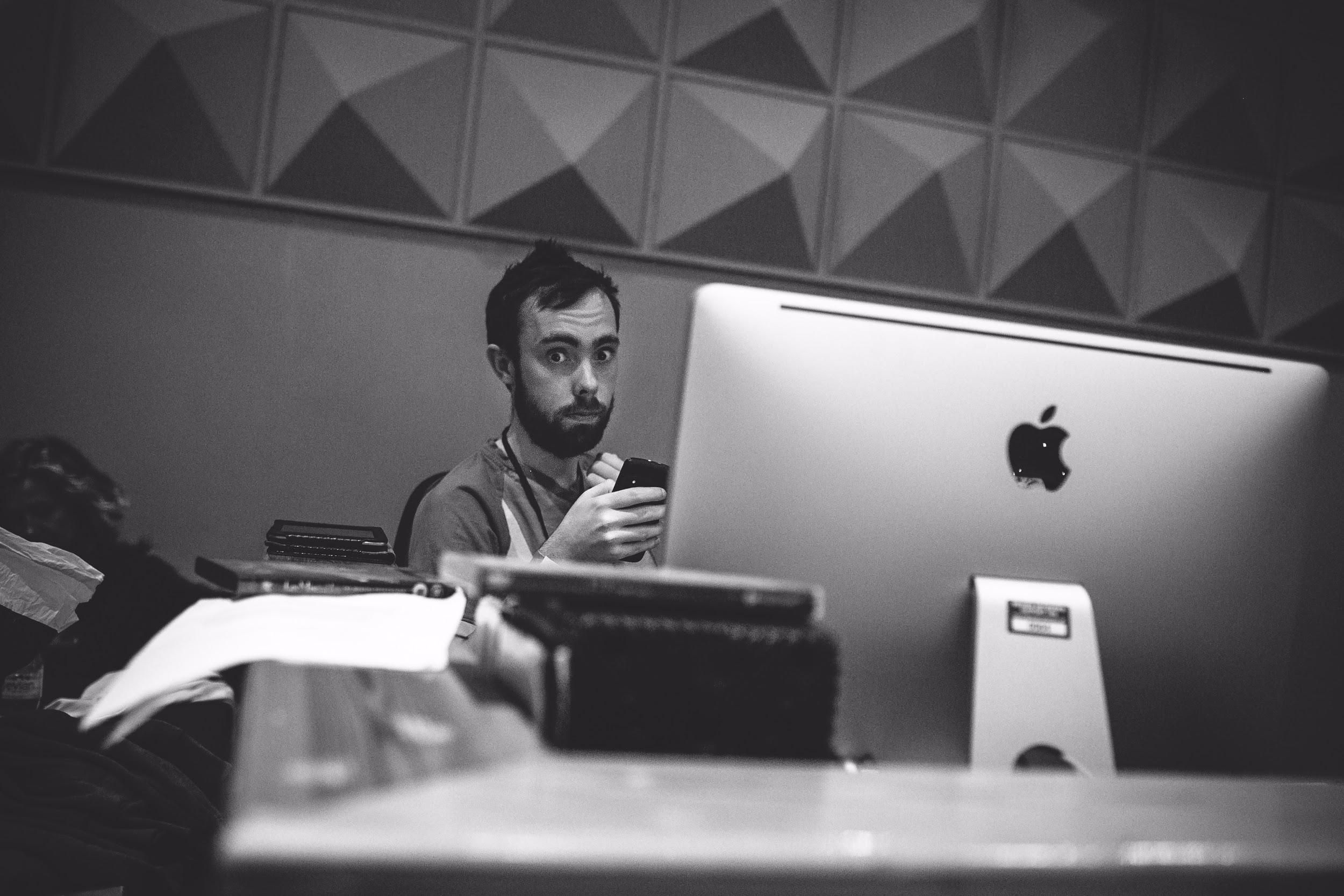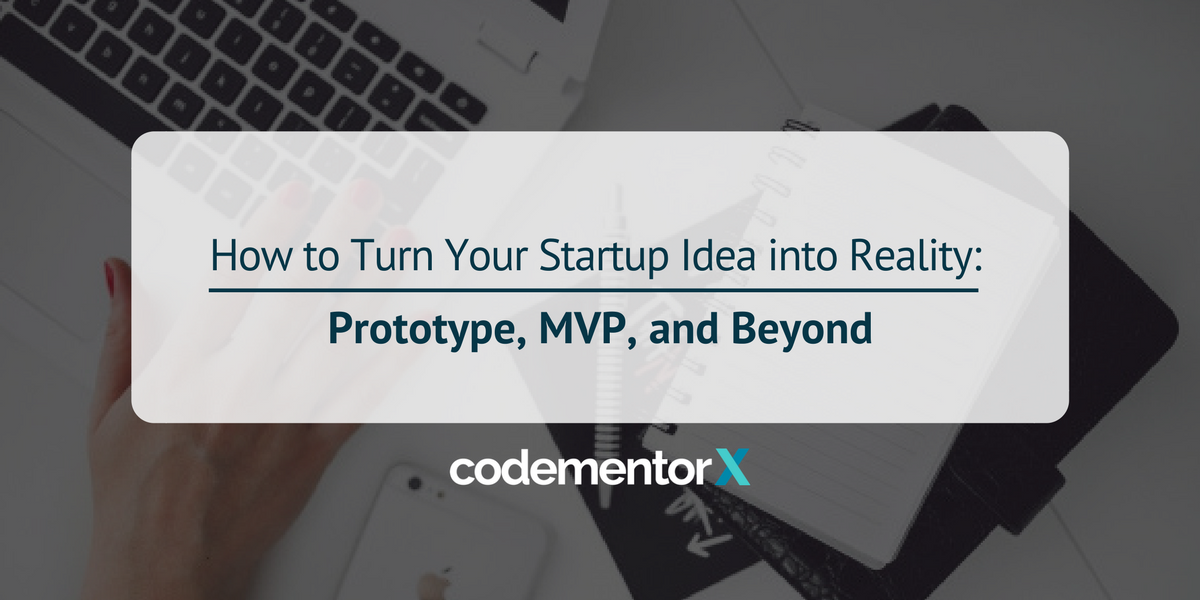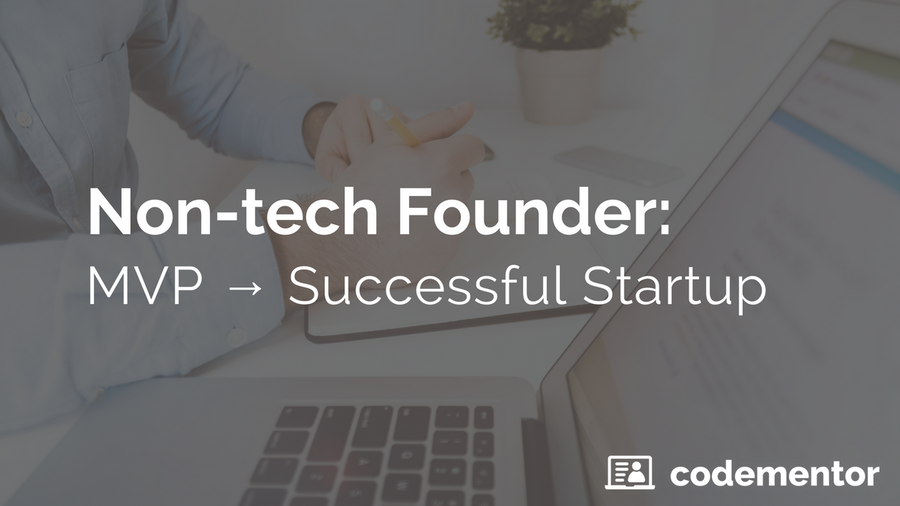- Fred and Mike’s never-ending project cycle of doom
- 6X6: An MVP bootcamp that transformed their habits
- Bad habits die hard: Nearly falling back into the cycle of doom
- Starting with one shippable feature: Founding UserCompass
- Your company can be bigger than one product
- Rethinking Startups = Redefining Success
The case for building a minimum viable product (MVP) is nothing new:
-
Gauge interest quickly before investing time and money into something that nobody wants.
-
Build new features informed by user feedback, not just gut feelings
-
Develop a customer base that grows with you.
But knowing something doesn’t mean it’s easy to act on it. After all, founders tend to dream big. They want to present the best product with the coolest features to their potential users.
"It’s one thing to read about MVP and lean startups," startup founder Fred Rivett said. “It’s another thing to internalize the core concepts and make that affect your work.”
Before switching to an MVP framework, Fred and his co-founder Mike Gatward saw countless projects die in the execution phase. They lost momentum. They didn’t have a viable long-term development plan.
But then, they put themselves through their own version of a MVP bootcamp by developing and shipping six products in six months.
Sound crazy? It is.
But what resulted from it was even more interesting: the "6 in 6" project didn’t yield their next great idea, but instead it transformed their habits. The time constraints forced them to focus on “minimum” and “viable” for each product. The result was far better product development habits that led to their first successful startup: UserCompass, a customer survey app.
We talked to Fred about the lessons he learned by developing six products in six months and creating his startup, and in this post he shares:
-
Why, despite hearing about lean methodology and MVPs over and over again, he and his cofounder still fell into their "never-ending project cycle of doom"
-
How, even after 6X6, they still almost fell back into their old habits
-
How they finally broke out and shipped a product with UserCompass
Note: We can help you find an experienced, vetted developer to help you ship your first product. Chat with us here.
Fred and Mike’s never-ending project cycle of doom
When Fred and Mike decided to build a startup together, they quickly formed bad habits. They’d come up with a big vision for a product and would start developing right away with no organizing plan for how to actually make it work.
There was "no sense of a deadline or scope — just an idea, a dream," Fred explained. As they worked on the project, the scope would get bigger and bigger.
"We called it the never-ending project cycle of doom internally, where we’d continually get excited, work on stuff, expand it, and then fail."
After about three months, Fred explained, "the shiny thing syndrome starts to wane, and you look at it and think, how am I going to do this?".
Without ever shipping a product, they’d give up and move on to the next shiny idea. This cycle happened for about 5 years until, finally, Mike got pissed.
He knew things couldn’t keep going as they were going, because you can’t build a startup if you never finish a product. Counterintuitively, Mike decided if they couldn’t ship one product, they should shoot for six. This was how the "six projects in six months" idea was born.
6X6: An MVP bootcamp that transformed their habits
The goal of 6X6 was to learn how to think smaller and create a shippable product. "It forced us into habits that enabled us to ship six things [in 6 months]," Fred said.
"You can read the book, but reading a book doesn’t change your habits. You have to actually act out the advice, and you have to actually change yourself."
They kept themselves accountable through a public blog and, with the public watching, they completed their goal. In six months, Fred and Mike developed a (1) web app, (2) Chrome extension, (3) WordPress plugin, (4) JavaScript bookmarklet, (5) daily e-newsletter, and (6) a deal site.
Some of these projects failed, and some succeeded. Their free Chrome extension FlashTabs currently has 6,000 active users. And their final project, a deal site for startups, made the team $8,000 in sales — the first money they made off a product.
But the goal of the six months wasn’t to create a successful product, it was to develop better habits and take on a "lean startup" mentality. Instead of getting stuck on the larger vision, Fred and Mike taught themselves to get something out the door and ready for user feedback.
Even the products that failed taught them invaluable lessons.
"We learned to ship: to take an idea and test it out, and we learned that some of our ideas worked better than others…We learned an important part of building a startup, which is you’ve got to learn how your users are going to interact with your product over time."
You can do this with a full-time job
It’s important to note that, for most of this time, Fred and Mike both had full-time jobs. They invested 1,200 hours into their 6X6 projects and, afterwards, developed UserCompass in the evenings and on weekends. "You have time but you have to prioritize," Fred explained.
One of the benefits of MVPs is that it takes less time to develop a product "one slice at a time." For big visionaries with small budgets, this is a practical way to get started.
Note: We can help you find an experienced, vetted developer to help you ship your first product. Chat with us here.
Bad habits die hard: Nearly falling back into the cycle of doom
Fred and Mike treated 6X6 as their "coding bootcamp", and afterwards decided it was time to take what they’d learn and actually create a legit startup.
"We shifted gears from ‘let’s experiment and let’s try stuff’ to ‘let’s make our startup now’, which came from the pressure of ‘it has to be right.’"
But, disappointingly, they spent the next nine months staring at a whiteboard and essentially falling back into old habits.
Looking back, Fred explained that their attitude around starting UserCompass is exactly what they would advise against."I like to dream big, and as soon as we lost the discipline and structure of 6X6, my mind went back to, ‘Ok, we have to build a startup, and that meant we have to have a big vision that’s exciting, that we need to spend many years on,’" he explained.
For nine months, nothing happened. They were stuck at the whiteboard. This "regression" back to old habits showed Fred just how hard it is to really follow the MVP process (despite reading about it again and again), and how natural it is for founders to get caught in the “big vision” trap that prevents them from launching anything.
But then, a successful startup founder gave them some good advice: go back to the MVP model that they’d undertaken during 6x6.
"Trying to preemptively plan a startup wasn’t working," Fred realized. “We needed to just make a small version of the dream, and learn from that small version.”
Starting with one shippable feature: Founding UserCompass
Fred explained, "The vision behind UserCompass is to answer the questions ‘What are our users thinking of our product? Which users are struggling and are likely to churn? Which users are being successful? Are we making progress the past 6/12 months at having less users struggle, and more succeed?’"
The founders looked for the "smallest slice" of their vision that they could complete. They started with NPS surveys and were able to complete a shippable product.
Today, UserCompass provides NPS surveys specifically for Stripe users. It’s not the complete grand and sexy vision they started out with, but it’s a workable product that their customers value. They built up UserCompass one slice at a time, currently working on features such as automatic resend and an integration with Braintree.
Why was it so hard if they’d finally found success based on an MVP process?
Because habits are powerful, Fred explained. "There’s a difference in knowing something and having a habit that backs it up."
Even though they understood the logic behind MVPs, they had to retrain themselves to act based on the logic. And sometimes, breaking a habit takes a couple of tries.
Fred has taught himself to think smaller and focus on the task at hand instead of getting caught up in the big vision, but he explained that it’s still not always easy. "There’s still an inner yearning to build the startup, whereas we just need to build the smallest thing now and detach ourselves from the dream in the short term."
Your company can be bigger than one product
While UserCompass is growing with new features in the works and new customers signing up, it’s still pre-revenue. And if the service doesn’t grow into the grand vision they have planned, Mike and Fred are okay with that.
We Are Contrast is Mike and Fred’s umbrella company that manages UserCompass. They are confident that We Are Contrast is going to succeed, whether or not UserCompass is their ultimate success story.
"My take on startups and entrepreneurship is that I can’t guarantee that my first product is going to be a big success. I have a vision for how I’d like to see it evolve…but as we go, our process is all about learning and realizing that we have assumptions and we’re testing those out…and the market may or may not have space."
Fred explained that this mentality is easier for them to maintain because they’re bootstrapped and don’t have major investors they’d have to pay back if the project fails.
Fred Rivett working and acting surprised by the photo
Rethinking Startups = Redefining Success
To Fred, his success story isn’t so much about building his dream startup.
Through what he learned from 6X6 and through developing UserCompass, he is able to work as a freelance developer and charge more for his time. He currently supports himself working one to two days a week, and devotes the rest of his time to growing his startup.
"I believe in the next ten years we’ll be successful — and hopefully a lot sooner than that. I know that we're going to stick to our goals over the next ten years if we keep moving, and if we keep iterating and improving and learning from people, I know we’ll get to where we want to go."




